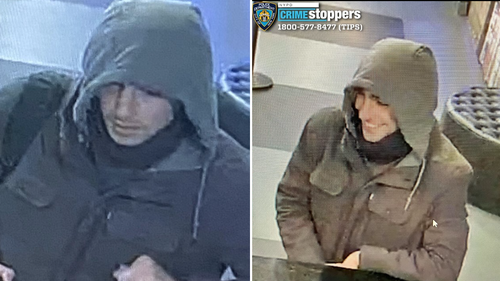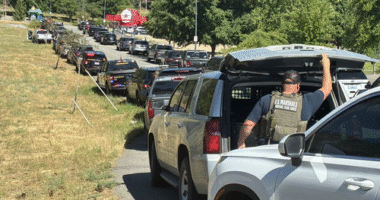Three days after the shooting of UnitedHealthcare CEO Brian Thompson, police still did not know the gunman’s whereabouts or a motive for the killing. Investigators were looking at whether the shooter may have been a disgruntled employee or client of the insurer, Chief of Detectives Joseph Kenny told reporters.
Video of the gunman fleeing Wednesday’s shooting showed him riding a bicycle into Central Park and later taking a taxi to a bus terminal that offers commuter service to New Jersey and Greyhound routes to Philadelphia, Boston and Washington, D.C, according to Kenny.

Security video shows the killer approaching Thompson from behind, firing several shots with a gun equipped with a silencer, barely pausing to clear a jam while the executive fell to the sidewalk.
The words “deny,” “defend” and “depose” were scrawled on the ammunition, Kenny said. The messages mirror the phrase “delay, deny, defend,” which is commonly used by lawyers and critics about insurers that delay payments, deny claims and defend their actions.
Thompson, a father of two sons who lived in a Minneapolis suburb, had been with Minnesota-based UnitedHealthcare since 2004 and served as CEO for more than three years.
The insurer’s parent company, UnitedHealth Group Inc., was holding its annual meeting in New York for investors. The company abruptly ended the conference after Thompson’s death.
UnitedHealth Group said it was focused on supporting Thompson’s family, ensuring the safety of employees and assisting investigators. “While our hearts are broken, we have been touched by the huge outpouring,” the company said.
UnitedHealthcare provides coverage for more than 49 million Americans. It manages health insurance coverage for employers and state and federally funded Medicaid programs.
In October, UnitedHealthcare was named along with Humana and CVS in a Senate report detailing how its denial rate for prior authorizations for some Medicare Advantage patients has surged in recent years.
The shooting has rocked the health insurance industry in particular, causing companies to reevaluate security plans and delete photos of executives from their websites. A different Minnesota-based health care company said Friday it was temporarily closing its offices out of an abundance of caution, telling employees to work from home.










